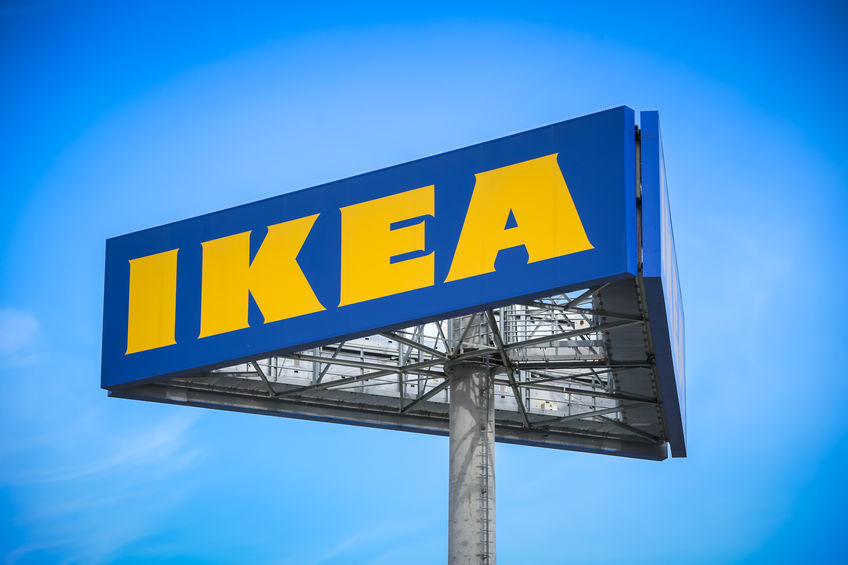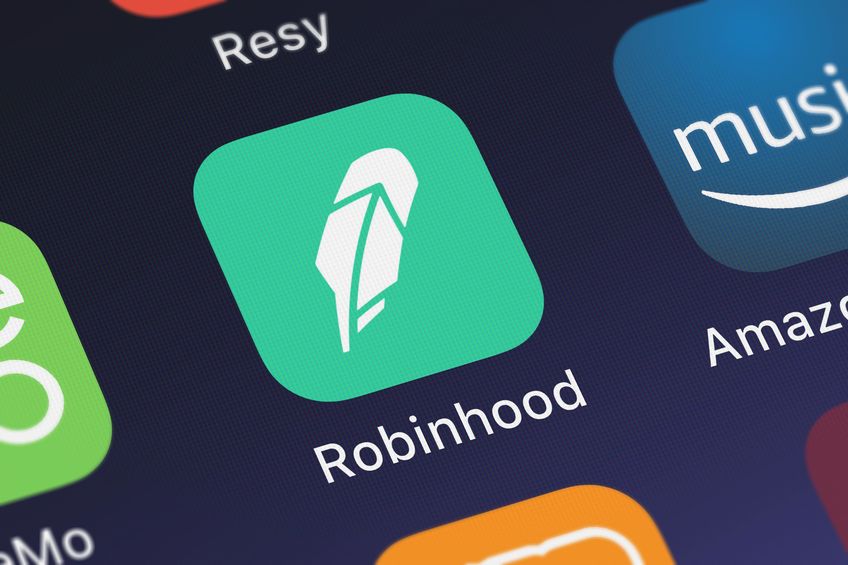Fintech
Homegrown Software Enables FundKite to Reconcile MCAs Daily Rather Than Monthly
September 21, 2021 “Data is the future,” said Alex Shvarts, CEO of FundKite. Through his own proprietary software that he personally built, Shvarts and his team can see daily deposits from merchants that FundKite has funded while also viewing the real-time financial condition of their customers. There are no assumptions, no end-of-month scrambling to do MCA reconciliations, and there are significantly less defaults, he says.
“Data is the future,” said Alex Shvarts, CEO of FundKite. Through his own proprietary software that he personally built, Shvarts and his team can see daily deposits from merchants that FundKite has funded while also viewing the real-time financial condition of their customers. There are no assumptions, no end-of-month scrambling to do MCA reconciliations, and there are significantly less defaults, he says.
Shvarts believes that he has a better chance of retaining clients and keeping deals in place when customers face difficulties. “When merchants are in trouble, they are being coached not to pay,” he said, hinting at third parties in the industry that lobby customers to stop payment in exchange for some kind of alleged assistance.
“Our merchants don’t go under,” Shvarts said.
The premise is that FundKite’s tech enables both themselves and the customer to keep track of how much money is going in and out in real time. That allows them to apply the precise holdback on a daily basis instead of waiting for a bank statement at the end of the month to see what the difference was.
“Our goal is to use our software to be extremely merchant friendly,” said Shvarts.
 By compiling different data sets about the merchant, potential clients can be pre-approved and fully funded in less than an hour through a completely digital application process. While this process of instant pre-approval isn’t new to the industry, it’s the idea of having access to client’s banking information that is key to the software’s accuracy and success in funding packages and payment options.
By compiling different data sets about the merchant, potential clients can be pre-approved and fully funded in less than an hour through a completely digital application process. While this process of instant pre-approval isn’t new to the industry, it’s the idea of having access to client’s banking information that is key to the software’s accuracy and success in funding packages and payment options.
The idea of end-of-month reconciliation doesn’t work for many merchants, according to Shvarts, who was speaking in reference to merchant cash advance transactions. “A month later, they could already be in the hole,” he said. “This product [where debits vary daily based upon true sales] works better for merchants, it works better for portfolios, if you’re actually reconciling and pulling what you’re supposed to, and not what you’re anticipating.”
The system is maintained in-house at the firm’s downtown Manhattan offices, with a fully temperature-controlled server room that is home to dozens of computers that host the company’s software. Backed up in the cloud as a failsafe, the system is as much of a presence in the office, both physically and virtually, as the individuals that work there.
“I’ve always had coding implanted in my mind, it’s an everyday process to make things simpler and faster,” he said. Shvarts explained that his love for coding and finance stems from a childhood passion for chess. “Chess taught me the ability to analyze moves.”
Columbia University’s Fintech Bootcamp Starts Dec 8
September 15, 2021 Columbia University will be launching an intensive Fintech course through the Fu Foundation School of Engineering and Applied Science starting on December 8. The 24-week program advertises that students will learn the intricacies of participating and contributing in the fintech world.
Columbia University will be launching an intensive Fintech course through the Fu Foundation School of Engineering and Applied Science starting on December 8. The 24-week program advertises that students will learn the intricacies of participating and contributing in the fintech world.
According to Columbia’s website, the program will teach students about Python programming, financial libraries, machine learning algorithms, solidity smart contracts, Ethereum, blockchain, and more. The course also promises “real world experience” by completing data set related finance projects.
The workshop will be three days a week, part time, and is designed to be attended alongside a work schedule, according to Columbia’s website. The workshop will be held fully in-person and will require students to participate in projects both in and out of the classroom. “The goal is to give you a comprehensive learning experience and true insight into a “day in the life” of a fintech professional, according to the curriculum.
Part-time bootcamps through Columbia can be costly, as the standard rate sits at $13,995 before any type of scholarship or payment plans.
Columbia will also give members of the workshop full access to their wide array of career services, so that participants can find employment after the program is over.
Columbia University did not immediately return a request for comment about the course.
America’s Football Fans Are About to Meet SoFi
September 9, 2021 When fans of the Los Angeles Rams return to the team’s new stadium for a Week-1 matchup with the Chicago Bears on Sunday, a large fintech brand will be there to welcome them. SoFi, the non-bank that shunned banks until it became a bank itself, secured the naming rights to the football stadium last season in Inglewood where both the Rams and Los Angeles Chargers play home games. (Covid prevented fans from actually attending in 2020.)
When fans of the Los Angeles Rams return to the team’s new stadium for a Week-1 matchup with the Chicago Bears on Sunday, a large fintech brand will be there to welcome them. SoFi, the non-bank that shunned banks until it became a bank itself, secured the naming rights to the football stadium last season in Inglewood where both the Rams and Los Angeles Chargers play home games. (Covid prevented fans from actually attending in 2020.)
It’s one of the boldest marketing campaigns ever taken on by a fintech player, a $400 million gamble of a deal that attempts to bring the legitimacy of the brand to a new level. Whether SoFi’s ambitions will bring millions of new customers into their fold or if the group has been overcome by vanity will be played out over the course of the 20-year deal between the stadium and SoFi.
A big thank you to @lapublichealth, the medical community and first responders + everyone doing their part.
WE’LL SEE YOU AT @SOFISTADIUM THIS FALL!
— Los Angeles Rams (@RamsNFL) May 25, 2021
Sofi’s logo is not just exclusive to the rafters of the 70,000+ seat stadium. It’s on the tickets, television broadcasts, repeatedly said on radio broadcasts, and will be mentioned on millions of social media posts throughout the upcoming seasons. Superbowl 56 will be played this February at SoFi Stadium, and the venue will be a major contributor to Los Angeles’ hosting of the Summer Olympics in 2028.
The stadium can also reach potential customers outside of the sports world. The Rolling Stones, Kenny Chesney, Motley Crue, and Def Leppard are scheduled to hold concerts at SoFi over the next few years, bringing hundreds of thousands of people to the stadium — all of whom will be exposed to the SoFi brand.
Rams owner Stan Kroenke, who used $5 billion dollars of his own money to build SoFi stadium, resonated with the company’s goals when announcing the stadium’s name last year. “It would be impossible to build a stadium and entertainment district of this magnitude without incredible and innovative partners who share our ambitions for Los Angeles, our fans worldwide and the National Football League” said Kroenke. “Since breaking ground at Hollywood Park, more than 12,000 people have worked side-by-side on this project, and we are proud to now have SoFi join us on this journey”.
Much like big banks that have name recognition, SoFi is just one of many who have their name on a stadium. Chase Field in Arizona, TD Garden in Boston, and Citi Field in New York are some of the costliest stadium naming rights in the industry.
It seems that if you want to be a big bank, having your name on a stadium is a rite of passage.
Ikea Invests in BNPL Service, Will Use Own Brand for Lending
August 31, 2021 Ikea’s majority parent company Ingka Group announced on Tuesday that they will join the buy-now-pay-later (BNPL) space with Jifiti, a group that offers flexible payment options. Jifti will also allow Ikea to keep their name, making it appear to consumers that Ikea is offering the service themselves — not a third party.
Ikea’s majority parent company Ingka Group announced on Tuesday that they will join the buy-now-pay-later (BNPL) space with Jifiti, a group that offers flexible payment options. Jifti will also allow Ikea to keep their name, making it appear to consumers that Ikea is offering the service themselves — not a third party.
What separates Jifiti from other BNPL services is their willingness to allow companies to use their own names in the borrowing process, so the company themselves appear as the lender. This use of their own brand in the checkout process when offering the BNPL service encourages customers to use the service as Ikea’s brand recognition and reputation are universally top tier in their industry. Combined with their business model of cost efficiency and great service through do-it-yourself assembly, customers may be intrigued to use BNPL if they are under the impression that they are borrowing from a company they already trust.
Jifiti will require credit checks, and may charge interest to buyers who choose to utilize the payment options, but Ikea has the option to pay the interest on products financed through these services in a promotional capacity, to encourage customers to use the service to purchase more. By taking a stake of $20 million in Jifiti and not just using their service, Ingka group will be able to see how these tools are utilized and get insight on how the industry works between both the lending process, consumer payback, and default rates throughout Jifiti’s entire book of business.
This is one of the many moves in an exploration of the financial scene for Ikea’s parent company, as Ingka Group acquirred 49% of Swedish Bank Ikano in Feburary. It seems as if as the company is looking to host a full array of financial services both in store and online at Ikea sometime in the future.
Despite offering access to credit for more expensive items previously, Ikea will partner with Jifiti so that consumers can have access to flexible payment options on products that aren’t priced in the thousands. While it may encourage customers to overspend or indulge if they choose to use the service, those same customers will not be able to purchase in the future if they’re still paying off their previous purchases.
Affirm Continues Surge after Exclusive Amazon Deal
August 30, 2021 In a move announced Friday that can change the way consumers interact with the largest online retailer, Amazon and Affirm have partnered together to bring flexible payment options to Amazon customers. A leader in the buy-now-pay-later (BNPL) space, Affirm saw share prices soar as high as 40% Monday morning after inking the exclusive agreement.
In a move announced Friday that can change the way consumers interact with the largest online retailer, Amazon and Affirm have partnered together to bring flexible payment options to Amazon customers. A leader in the buy-now-pay-later (BNPL) space, Affirm saw share prices soar as high as 40% Monday morning after inking the exclusive agreement.
According to the deal, Affirm plans to offer financing options for purchases greater than $50 for qualified Amazon customers. Buyers are approved, given the cost of financing and the price of their product prior to purchase upfront, and allowed to make payments via installments on those products. Customers who choose to finance through Affirm will not be charged any late or hidden fees.
“By partnering with Amazon we’re bringing the transparency, predictability and affordability that Affirm provides today to the millions of people who shop on Amazon.com in the U.S.,” said Eric Morse, Senior Vice President of Sales at Affirm in a press release. “Offering Affirm’s alternative to credit cards also delivers more of the payment choice and flexibility consumers on Amazon want.”
After an exclusive deal with Walmart in February of 2019, the company is continuing their attempt at a market takeover by striking a deal with Apple’s Canadian market and Shopify in the states — both within the last month. Affirm is quickly beginning to show dividends by putting together some of the largest exclusive flexible payment option deals out there.
With competition heating up in the BNPL industry, Affirm isn’t the only one trying to incorporate exclusive deals with large markets. Square, a company founded by Twitter’s Jack Dorsey recently acquired the Australian firm Afterpay for $29 billion. Paypal has also made their presence known by offering similar services. With a market cap at over $26 billion, Affirm will be in the fight to compete in the flexible payment option space. With competition from companies like Paypal and moguls like Dorsey, Affirm CEO Max Lechvin is in familiar territory. Prior to starting Affirm, Lechvin was a co-founder at Paypal.
With transparency a major component of their business model, Affirm customers may begin to spend more while initially paying less, a move that can provide a better experience for customers— something that seems like a no-brainer for any company selling pricey consumer-based products.
Robinhood Posts Q2 Net Loss of $502M, Shareholders/Fans Pick Management’s Brain on the Call
August 19, 2021 Robinhood posted a massive net loss last quarter to the tune of $502M on only $565M in revenue.
Robinhood posted a massive net loss last quarter to the tune of $502M on only $565M in revenue.
Following the announcement, the company’s earnings call was a bit unusual, sounding more like a live AMA Reddit thread as the platform’s shareholders were given an opportunity to talk to senior management, a platform usually reserved only for Wall Street analysts. This format led to the submission of 1,300 questions, way more than could be answered in the time allotted, so only the most upvoted were selected to be answered on the call itself.
One person asked if they could get a Robinhood hat and hoody jacket, a surreal insight into how shareholders are thinking about a company that lost $2 for every dollar it brought in last quarter. Another shareholder asked if Robinhood was getting a crypto wallet.
“…I know that there’s been a ton of enthusiasm from the crypto community and the Dogecoin community in particular, on getting access to wallets and it’s something that our teams are working on,” said Robinhood CEO Vlad Tenev.
When the shareholders’ turn was over, the analysts took control, asking more pointed questions, like what happens when Robinhood runs out of potential customers that have so far comprised the demographic that led to the company’s early success.
Tenev said that “I think more and more, you’re going to see Robinhood, particularly with our mobile first platform and ease of use, be become incredibly attractive to folks that haven’t previously considered Robinhood, is the go to place. So we’re pretty optimistic about the opportunity ahead of us. And that’s limiting the response to investing. I think there’s a lot more that we can do, when we talk about being the single money app for our customers.”
The company’s stock went down slightly after earnings.
AMEX: Kabbage to be the “Landing Point” for Small Businesses
August 5, 2021 Now that American Express has put “Kabbage to work” with a business checking account offering, the company shared what’s next during the Q2 earnings call.
Now that American Express has put “Kabbage to work” with a business checking account offering, the company shared what’s next during the Q2 earnings call.
“..what you’ll see ultimately is the Kabbage platform being the landing point for small businesses,” AMEX Chairman and CEO Steve Squeri said. “And the way you want to think about this is fintech with scale. And so when you think about Kabbage, which is a pure-play fintech in the small business space and you think about American Express and the small businesses, and you combine that together, you have a fintech at scale. Not a fintech growing at scale, a fintech growing from scale with a balance sheet. And so that has always been the vision of Kabbage. As you bring Kabbage into the bank holding company structure, you have to do some other things to future proof it, if you will, and that’s what we’ve been doing. But that’s what you will see.”
How to Think About Credit Invisibility
July 29, 2021Authored by:
Lily Cook, Researcher at Canadian Lenders Association
Tal Schwartz, Senior Advisor at Canadian Lenders Association
 Recent research by PERC has highlighted the issue of credit invisibility in Canada, defined as “persons with either no account payment history in their credit report (referred to as “no files”) or fewer than three accounts in their credit report (referred to as “thin files);”
Recent research by PERC has highlighted the issue of credit invisibility in Canada, defined as “persons with either no account payment history in their credit report (referred to as “no files”) or fewer than three accounts in their credit report (referred to as “thin files);”
In Canada, credit scores are calculated using payment history, outstanding debt, credit account history, recent inquiries and types of credit. However, according to research from Cornerstone Advisors, the ‘on-ramps’ to being credit visible are limited and come with challenges. The most common paths are:
- Credit cards:
- Collections: Collections as a point of entry into a credit system immediately sets the consumer at a disadvantage, since the first thing to identify them is a negative characteristic.
In general, Canadians under 25 tend to use credit cards at far lower rates. Those in that age group who do have a credit history have the highest percentage of credit scores below 520, according to Equifax Canada.
The rate and impact of credit invisibility in Canada is significant:
- 35.3% of Canadians are credit invisible vs. 19.3% in the US.
- the issue disproportionately affects immigrants, minority communities or younger individuals.
How are fintechs addressing this?
1. Access to alternative data
Canadian data aggregators provide lenders with access to non-traditional credit information that advanced firms can apply ML to in order to better adjudicate credit.
- Open banking data providers like Flinks and Inverite provide consumer transaction history information that allows fintech lenders to underwrite credit invisibles based on their cash flow instead of their credit score.
- Commercial data providers like Forward AI, Boss and Railz pull financial data from accounting systems, payroll, and point of sale terminals in order to give lenders a more fulsome picture of a businesses health.
2. Make alternative data mainstream
PERC Canada recommended that the CFPB explicitly include non-financial institutions in their definition of a ‘creditor’ in order to report positive payment data to credit bureaus. Credit reports that could ‘reward’ customers for paying telecommunications bills on time, for example, could make the credit system more forgiving in the future.
- Billi, for example, a Canadian fintech allows users to integrate on-time payments for their Amazon Prime and Netflix accounts into their credit reports in order to improve them.
Canadian credit bureaus have also taken active steps to being more inclusive of alternative data. A prime (no pun intended) example is Landlord Credit Bureau’s (LCB) and Equifax’s partnership to allow rent payments to count towards credit scores.
- Both as a way to reduce risk for landlords and give tenants a leg up in the market, this shared use of alternative data is “ninety-plus per cent….positive in nature, so overwhelmingly landlords use this to reward tenants,” LCB’s CEO, Zachary Killam said.
3. Create a better on ramp to credit building
Credit building loans can unlock credit for those with minimal histories or challenging track records. These are installment loans that only pay out once the customer has paid them off, and are offered by fintechs like as Spring, Marble and Refresh.
Essentially reverse loans, the reverse structure protects the lender, in the event that the customer doesn’t make all their payments. Over the course of the loan term, the customer’s payments are reported to the credit bureaus. Borrowell, which recently acquired Refresh’s credit building loan portfolio, is now one of the largest providers of this service in Canada.
So what’s the solution?
In order to drive meaningful change on the issue of credit invisibility, fintechs must continue to enable lenders to challenge the limitations of the credit system – by improving access to alternative data, normalizing its use and building better on-ramps to the credit system than collections and credit cards.
Credit invisibility is caused largely by structural issues within Canada’s data markets, but fintechs are starting to fill these gaps.





























